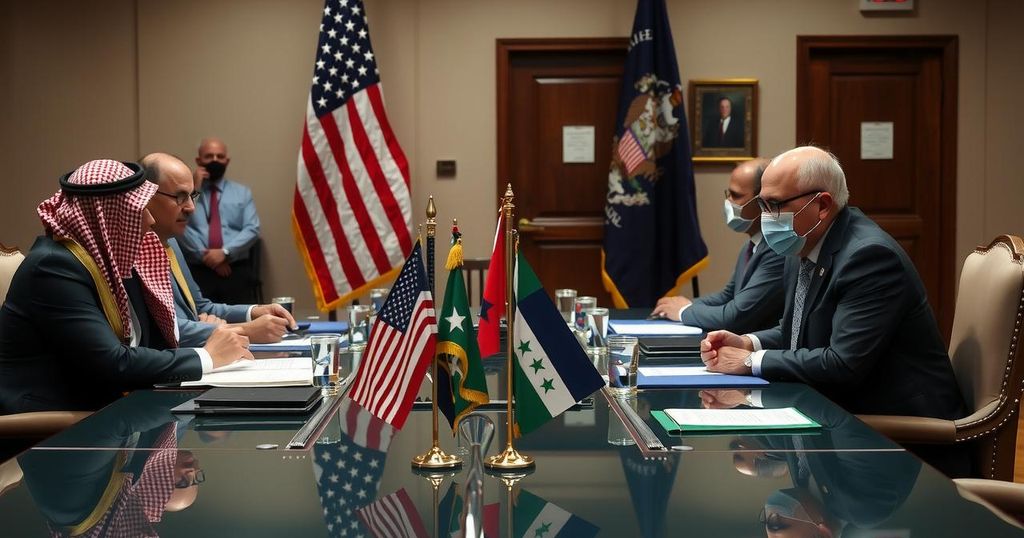Diplomatic Efforts in Aqaba: Shaping Syria’s Future Post-Assad

Top diplomats from the U.S., Turkiye, the EU, and Arab nations met in Aqaba, Jordan, to discuss the future of Syria post-Assad. The talks centered on forming a political transition framework, with Blinken emphasizing the need to prevent a resurgence of Daesh. Relations between Turkiye and the U.S. remain complicated due to differing interests in the Kurdish-led SDF. Overall, the meeting aimed to foster unity among regional stakeholders while addressing potential sectarian divisions in Syria.
On Saturday, high-ranking diplomats from the United States, Turkiye, the European Union, and various Arab nations convened in Aqaba, Jordan to deliberate on the future of Syria following the ousting of President Bashar Assad. This assembly is indicative of the increasing competition among regional and international powers for influence in Syria’s political landscape. U.S. Secretary of State Antony Blinken attended the meeting as part of the Biden administration’s effort to engage with militant factions resulting from the recent transitions in Syria.
In the backdrop of these discussions, Turkiye has played a significant role in supporting opposition forces against Assad’s regime. Turkish Foreign Minister Hakan Fidan announced the reopening of Turkiye’s embassy in Damascus, which marks an important step in bilateral relations. This meeting excluded representatives from Russia and Iran, Assad’s primary allies, underlining a distinct shift in diplomatic dynamics as the key Arab diplomats engaged in private discussions to reinforce their collaborative efforts.
Furthermore, there are ongoing tensions between Turkiye and the U.S. regarding the Kurdish-led Syrian Democratic Forces (SDF), which complicates the broader geopolitical landscape. Blinken emphasized the importance of preventing the regrouping of Daesh and maintaining the SDF’s focus on combating threats posed by terrorist groups. Meanwhile, discussions concerning an inclusive political resolution in Syria were paramount, as Iraq and other regional stakeholders sought assurances from Turkiye regarding its stance on territorial integrity.
Overall, this diplomatic engagement represents a strategic initiative aimed at shaping Syria’s future amidst complex inter-regional relations and the persistent threat of terrorism. The outcome of these discussions could significantly influence Syria’s political transition and stability within the region.
The ongoing conflict in Syria, triggered by the civil war that began in 2011, has raised significant concerns about governance, security, and regional stability. Following the recent developments culminating in the ouster of President Bashar Assad, various global and regional powers are re-evaluating their strategies regarding involvement in Syria. As the Biden administration seeks to establish influence in Syria, particularly through the engagement of militant groups, the interplay between Turkiye, the U.S., and Arab nations is ongoing to ensure political processes respect the rights of diverse sectarian groups in the fractured nation. Furthermore, the role of the Kurdish-led Syrian Democratic Forces as a crucial ally in the fight against Daesh remains a contentious issue, impacting U.S.-Turkish relations.
In conclusion, the discussions held among top diplomats from the U.S., Turkiye, the EU, and several Arab nations in Jordan reflect a critical turning point in Syria’s political landscape. As regional powers seek to influence the transition following Assad’s regime, the complexities of relationships between the involved nations, especially concerning militant groups and ethnic factions, will play a decisive role in shaping Syria’s future. Securing a collective commitment to an inclusive political dialogue remains essential for achieving peace and stability in the region.
Original Source: www.arabnews.com








